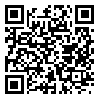Volume 28 - Supplementary
IBJ 2024, 28 - Supplementary: 335-335 |
Back to browse issues page
Download citation:
BibTeX | RIS | EndNote | Medlars | ProCite | Reference Manager | RefWorks
Send citation to:



BibTeX | RIS | EndNote | Medlars | ProCite | Reference Manager | RefWorks
Send citation to:
Miri F, Valizadeh Laktarashi H, Sharafi S, Naseri Z, Jelvay S. Development and Evaluation of a Mobile Health Application for Self-Management of Asthma Patients. IBJ 2024; 28 :335-335
URL: http://ibj.pasteur.ac.ir/article-1-4772-en.html
URL: http://ibj.pasteur.ac.ir/article-1-4772-en.html
Abstract:
Introduction: Asthma is a chronic respiratory condition affecting millions worldwide. Effective self-management is crucial to control symptoms, prevent exacerbations, and improve the quality of life for asthma patients. The use of mobile health (mHealth) applications for the self-management of diseases has gained significant attention over the past decade. The mHealth applications offer a promising solution by providing tools for monitoring symptoms, medication adherence, and patient education. This paper aimed to develop and evaluate a mHealth application for asthma self-management to provide an intuitive, user-friendly platform that addresses the specific needs of asthma patients.
Methods and Materials: This applied study, conducted in 2024, was divided into two main stages: development and evaluation. The initial stage comprehensively identified the functional requirements for a practical asthma management application. Once the requirements were clearly defined, the conceptual model of application was developed using Microsoft Visio 2020. Following the conceptualization, the actual development of the application was carried out using Java programming. In the evaluation phase, the usability of application was assessed using the Mobile Application Usability Questionnaire. This standardized tool was employed to gather detailed feedback from patients with asthma, focusing on various aspects of the usability of application, including ease of use, interface design, functionality, and overall user satisfaction.
Results: The application offers several key features, including reminders, alerts, educational content, valuable links, data storage, a specialist finder, and notifications for asthma disease events. Usability testing involved 28 users with asthma disease. The participants generally expressed satisfaction with the application, rating it an average of 5.57 out of 7.5 (± 1.12).
Conclusion and Discussion: The findings suggest that the developed mobile application has significant potential to enhance asthma management for individuals. By meticulously addressing the specific needs of users and providing a range of essential services, the application can facilitate better symptom monitoring, improve medication adherence, and promote overall health management. The features of application, such as real-time symptom tracking, personalized action plans, medication reminders, and educational resources, are designed to empower users to take control of their condition more effectively. Additionally, the user-friendly interface of application and its integration with healthcare providers further support its role in improving the quality of life for asthma patients. As a result, this mHealth tool represents a promising advancement in asthma self-management, potentially reducing the frequency of exacerbations and healthcare visits, ultimately leading to improved clinical outcomes. There is significant potential for the use of mobile applications in the self-management of chronic diseases, and it is recommended that researchers pay more attention to this area.

Methods and Materials: This applied study, conducted in 2024, was divided into two main stages: development and evaluation. The initial stage comprehensively identified the functional requirements for a practical asthma management application. Once the requirements were clearly defined, the conceptual model of application was developed using Microsoft Visio 2020. Following the conceptualization, the actual development of the application was carried out using Java programming. In the evaluation phase, the usability of application was assessed using the Mobile Application Usability Questionnaire. This standardized tool was employed to gather detailed feedback from patients with asthma, focusing on various aspects of the usability of application, including ease of use, interface design, functionality, and overall user satisfaction.
Results: The application offers several key features, including reminders, alerts, educational content, valuable links, data storage, a specialist finder, and notifications for asthma disease events. Usability testing involved 28 users with asthma disease. The participants generally expressed satisfaction with the application, rating it an average of 5.57 out of 7.5 (± 1.12).
Conclusion and Discussion: The findings suggest that the developed mobile application has significant potential to enhance asthma management for individuals. By meticulously addressing the specific needs of users and providing a range of essential services, the application can facilitate better symptom monitoring, improve medication adherence, and promote overall health management. The features of application, such as real-time symptom tracking, personalized action plans, medication reminders, and educational resources, are designed to empower users to take control of their condition more effectively. Additionally, the user-friendly interface of application and its integration with healthcare providers further support its role in improving the quality of life for asthma patients. As a result, this mHealth tool represents a promising advancement in asthma self-management, potentially reducing the frequency of exacerbations and healthcare visits, ultimately leading to improved clinical outcomes. There is significant potential for the use of mobile applications in the self-management of chronic diseases, and it is recommended that researchers pay more attention to this area.

| Rights and permissions | |
 |
This work is licensed under a Creative Commons Attribution-NonCommercial 4.0 International License. |







.png)
